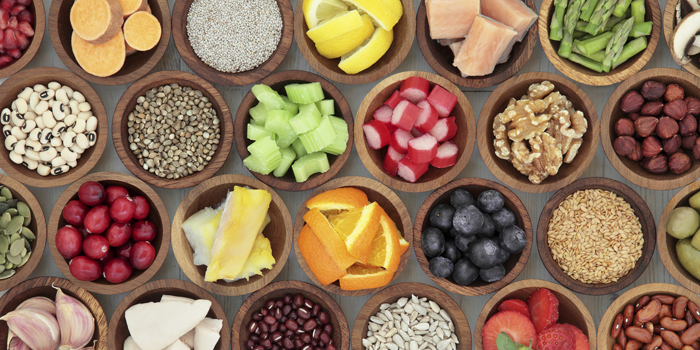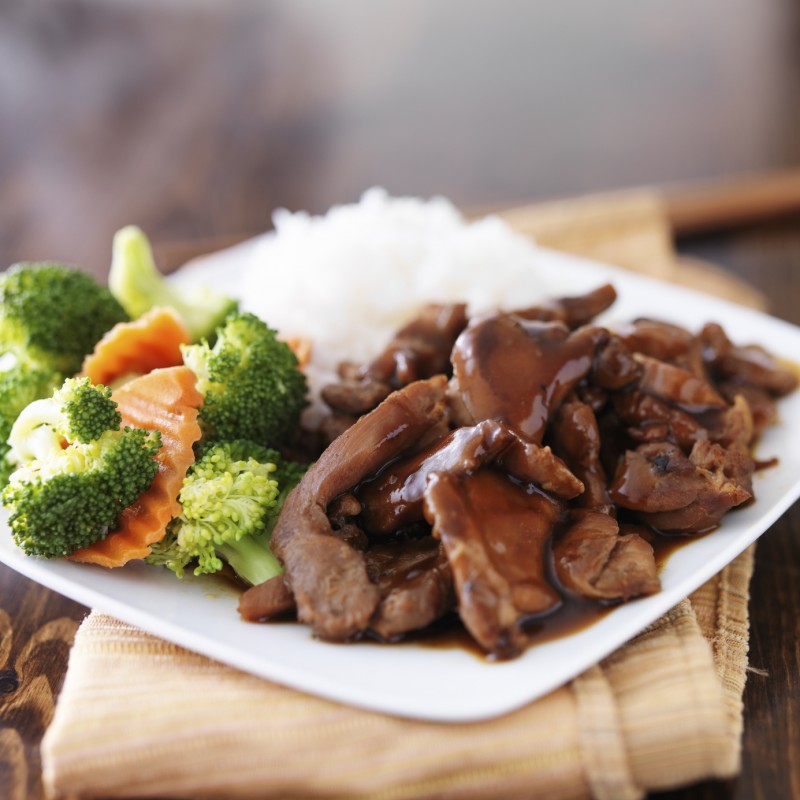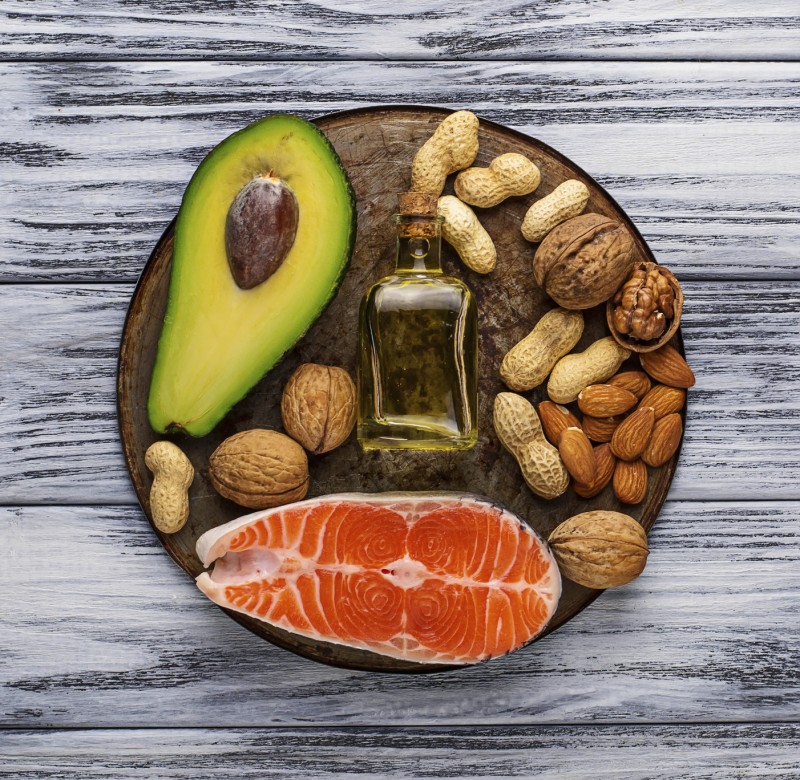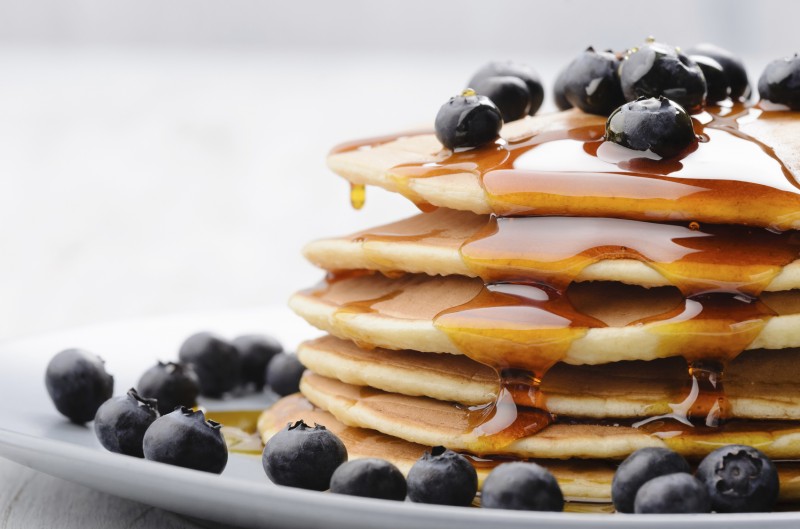
Ah, the timeless debate of optimal macronutrient combinations. While prevalent for years in bodybuilding circles, I’ve seen bits and pieces of the debate start to trickle down to the general population.
While not the end all, be all of debates or appearance-altering factors, the combination in which you eat your macronutrients can leave a marked impact upon your physique. Of course, the fitness industry being what it is, everyone has their own view on the subject. Which only serves to create more confusion and disillusion around what foods to eat, when to eat them and in which company of other foods..
No bueno.
We don’t need any more unnecessary disillusion and confusion. We need results. And I’ll be damned if I’m not the coach to deliver you said these results. Over the course of this article we’re going to dig into and understand the application and effects of different macronutrient combinations.
Use this information at your own risk: the resultant gains may be larger than you could imagine.
1. Protein and Carbs
Optimal Timing: Post-workout
Taking in a meal based in protein and carbs with only trace fats helps kickstart muscle protein synthesis and aids in rapidly replenishing your glycogen stores, run low from a hard training session.
Why: Protein and carbohydrate based meals are some of the best and the tastiest meals out there. How can you turn down a massive bowl of rice, perfectly stir-fried mushrooms, onions and peppers topped with juicy slices of steak? After training, especially with the goal of building muscle, replenishing your intra-muscular glycogen becomes quite important. This replenishment can be readily accomplished through taking in foods such as rice, potatoes, pasta or your favorite flavor of frozen yogurt and waffles.
RELATED: Don't Fear the Carbs: Timing, Sources, and Portions for Muscle Building
If you haven’t come to terms with this facet of building your physique yet, each meal should be based in protein. After your training session you need the all the more nutrients from a thick, plump cut of steak to replenish your amino acid pool, aid recovery and fuel the muscle building process.
Sticking primarily to protein and carbs post-training also allows you a bit of freedom in which to enjoy a treat, or some of your favorite foods.
Unless they happen to be deep into a dieting phase or contest prep, I often encourage my clients to use this post-workout feeding time to have frozen yogurt, sweet potato fries, bagels, and basically anything that’s primarily composed of plenty of carbs, along with minor trace fats is fair game. Encouraging this also allows you to enjoy some dietary freedom while still making the progress you’re working towards.
If there’s one thing that makes a diet or nutritional plan much more viable and effective, it’s finding ways to make it enjoyable and sustainable over the long haul. And utilizing the flexibility of your post-workout hormonal environment to take advantage of some of your favorite “treats” is a great way to do just that.
I mean, if you could eat ice cream after the majority of your sessions and still move the needle aggressively forward, I have no doubt that you wouldn’t come to enjoy the process of building your physique into one worthy of Hercules himself.
Why Not: Naturally, as with any nutritional method, this post-workout dietary freedom doesn’t work well for everyone.
The resulting insulin spike can make some people very sleepy and lethargic. This could also be a sign that you have had too many carbs and may want to dial back your serving size next time around.
My suggestion in this case would be to reduce your daily carbohydrate intake, look at your lifestyle, and place a focus on modulating your stress, ensureing your training intensity and volume are in a healthy spot for your body internally and physically. After this you can then come back to delicious, salty, starchy freedom after your sessions
It’s much more important that your body handles nutrients appropriately than it is for you to get your daily dose of sweets.
2. Protein and Fat
Optimal Timing: Breaking the fast, and meals in the earlier part of your day. Think of meals such as bacon and eggs, a turkey patty and nut butter or chicken lettuce breakfast ‘tacos.’
Why: Talk about a debate that’s been beaten to death once, twice, and then 4028 times over. Stemming from the inconclusiveness and endless debate of this topic, I’m going to share my experiences and anecdotes surrounding protein and fat based meals.
In theory, protein and fat based meals may promote greater fatty acid metabolism and resultant fat burning if you wait to introduce carbs into your day. By allowing your fasting blood glucose to stay low, minimizing spikes in insulin, and not taking in carbs (which are much more easily and readily converted into glucose, and ultimately your fat stores), you keep your physique in a healthy, happy state of fat burning. The train of thought and research goes that the longer you can keep your body in this state, the more fat you’ll burn. Of course, some had to take this too far and gave birth to the evolution of carb-phobia and everybody stuffing themselves with meat, nut butter, and bacon at every turn.
I do believe there’s some benefit to withholding carbs for the first meal or two of the day, so that your body IS encouraged to dig into stored fat. But I also recognize the need to include carbs in the majority of nutrition plans, especially in and around your training sessions. Even more so if building slabs of muscle is your main priority.
For some lifters, they find these protein and fat based meals are much more satiating than meals rooted in carbs and protein. For the record, I think you’re all crazy, but whatever works optimally for YOU is more important than my thoughts on the matter.
If this is the case, and you find you stay satiated longer, protein and fat meals work great as a first meal for busy people who may not be able to eat again until lunch time. Besides, bacon, egg, and avocado is a pretty damn tasty combination to kick off your day with.
Why Not: Carbs are delicious, enjoyable and productive towards muscle growth. Contrary to some, I personally, don’t find these meals to be particularly filling. Not being one to enjoy being forever hungry, I much prefer to get the vast amount of my calories from carbs.
Having too many of these meals can quite easily push you into an unwanted surplus or erase your deficit due to fats being over twice as calorically dense as carbs. This just means that you don’t want to allow “open season” on fats, regardless of how “healthy” they may be.
3. Protein, Fat, and Carbs
Optimal timing: Pre-workout, refeeds/cheat meals
Why: This may be one of the only times you’re encouraged to have a combo of all three macronutrients (free meals/refeeds aside). Before training, it’s important to have a healthy supply of amino acids circulating in your blood. The more we can do minimize any chance of tapping into muscle tissue for fuel, the better. Doing so is not only important for maintaining muscle protein synthesis, but for preventing catabolizing precious muscle tissue.
I believe carbs before training are absolutely fantastic. Carbs serve to top up your intra-muscular glycogen, as well as provide fuel for your training session (and a wicked pump).
In fact, as I moved through my recent contest prep diet, I did a little experimentation with the timing of my meagre pittance of carbs. Despite being in the final 2-3 weeks before stepping on stage, I was able to generate some of my greatest training sessions, and improve recovery throughout prep by placing my carbs prior to my session. How’s that for food for thought?
WATCH: Why the Amino Acid Profile of Red Meat is Ideal
You then include fats for satiety, to blunt insulin release, which prevents a sharp rise and fall in your blood sugar, preventing you from going hypo (this really sucks if you’ve been there).
For a point of reference, I will have 1-1.5 tablesppons of almond butter with my pre-workout meal, regardless of carb intake. I’ve dealt with “going hypo” during training more times than I care to recall and it does not make for a fun training session. Cold sweats, energy tanks, poor contractions, everything becomes twice as heavy — no thank you.
Why not: As with anything truly delicious, these meals can be a double-edged sword. Unless wisely made at home, many of these meals are very calorically dense due to LOTS of fat. That said, this does make them near-perfect for free meals.
I mean, think of a burger and fries. Delicious, filling, and if you’re lean and/or depleted enough you’ll noticed improved vascularity, energy, and muscle fullness after eating such a meal. But if you’re to have that every day? You’ll be digging yourself into a bit of a hole when it comes to fat loss.
Again, these meals are best approached with precision and made at home unless you’ve got a planned refeed on deck.
My favorite pre-workout feed:
- 6 oz of shredded chicken breast
- 200 g of sweet potato
- 1 tbsp of Almond Butter
This yields approximately 45g protein, 35-40g of carbs, and 10g of fat.
4. Carbs Before Bed — Massing Phase
First of all, eating carbs after 6 PM will NOT make you fat (unless it puts you into a surplus). There isn’t some magical insulin fairy who sits by the pool all day waiting for 6 PM to hit. Then when 6 PM comes, said fairy gets up and decides that everything you eat between now and 8am will be stored as fat. This is a simple-minded fabrication.
As a rule of thumb, I’m a fan of carbs before bed. In certain contexts and situations, I become an even bigger fan.
Why: The dopamine rush from ingesting carbs allows your body and mind to relax a bit. This is perfect for before bed, as it promotes your pineal gland to secrete melatonin. Aside from supporting a healthy circadian rhythm, the melatonin relate will help you fall asleep, as well as improve your overall sleep quality.
If you train bright and early, eating a bushel of carbohydrates the night before will load your muscles with glycogen that can be used as fuel to push you through your sessions. This negates the need for as many (if any) carbs first thing in the morning. This is great if you don’t like eating first thing in the morning or if you enjoy training on an empty stomach.
While nobody enjoys going to bed stuffed with food, very few lifters are on the other end of that spectrum and enjoy going to bed hungry. If you take in a moderately sized bolus of carbohydrates 60-90 minutes before bed, you should hit the sheets in a perfect balance between being hungry and overstuffed.
Why Not: As with nearly every nuance of nutrition, each technique, combination or method has two sides to it. Eating a bolus of carbs before bed may make you sleep more effectively and provide fuel for an early training session, BUT doing so may hinder fat burning in the morning. Although, I’ve got a suspicion that the dampening of morning lipolysis is quite minor, and need not be of concern for most of you.
However, if you overdo it (easy to do at night), eat something that irritates your gut or don’t have sufficient digestive firepower, that carry feast before bed could result in you waking up bloated and full. I don’t know if you’ve ever woken up full and bloated before, but it is NOT a pleasant experience.
By now you’re probably wondering, “in what context SHOULD I eat a bunch of carbs before bed?”
My answer? Unless you’re deep into a (contest) diet, I would have a good sized portion of carbs 60-90 minutes before bed. This timeline should allow you to reap the benefits of dopamine, the ensuing melatonin release and resting well without going to bed stuffed, and possibly waking up bloated and full.
The Final Reps and Your Takeaways
Ultimately, you have to mess around for a while and figure out what works for you, and when it works best. As well as consider the context of your goals when deciding how and when to lay out your macros. I know that may not be what you wanted to hear, but as with any sound nutrition advice, things become very individual and must be treated as such.
Here’s what you need to take away:
- Different macronutrient combinations can each have their own physiological effects, advantages, and disadvantages. Learn how to use each combination to best suit your body’s needs.
- Carbs are a powerful ally in both muscle building and fat loss. Of all the macronutrients, carbohydrates have the power to do the most damage, and the most good for your body.
- Take advantage of the post-workout freedom to enjoy more “fun” foods. Seriously. Eat the damn waffles.
- Dopamine can have a powerful impact on your physique, and recovery. Manipulate your nutrition wisely and take total advantage of it.
Alex is a self-proclaimed anti-meathead and part-time nerd. When he's not working towards Greek God status in the gym or learning how to better serve his clients, he can be found exploring how to further crush life, perfect his flair in the kitchen, or pulling the perfect shot of espresso. You can learn what he's all about at MASSthetics.













3 Comments